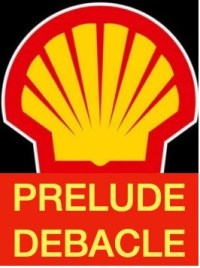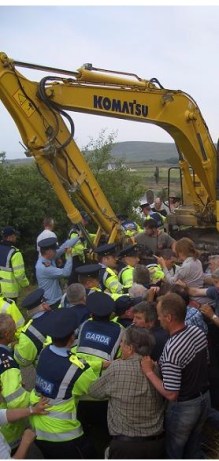 Argus Media
Argus Media
Australia’s Prelude LNG cleared for restart
Published date: 18 March 2022
Production at the 3.6mn t/yr Prelude floating LNG project in the Browse basin offshore Western Australia (WA) has been granted approval to restart, Australia’s offshore security regulator said.
The National Offshore Petroleum Safety and Environmental Management Authority (Nopsema) has closed a direction issued to project owner and operator Shell on 23 December 2021, instructing it to “demonstrate that the facility can operate safely in the event of power loss before production can commence”. Shell also confirmed that the direction has closed, but has no further comment at this stage.
 Shell resumes LNG shipments from world’s largest floating structure
Shell resumes LNG shipments from world’s largest floating structure
 LNG Canada construction delay creates cost uncertainty, clouds world supply
LNG Canada construction delay creates cost uncertainty, clouds world supply












 Shell Corrib firm gets €70m cash injection
Shell Corrib firm gets €70m cash injection




 New Release – Issued by Shell to Sea – December 30th 2015 – For immediate release
New Release – Issued by Shell to Sea – December 30th 2015 – For immediate release



 The projected spend of €250m on the controversial project this year will lead to the overall costs exceeding €3.6bn.
The projected spend of €250m on the controversial project this year will lead to the overall costs exceeding €3.6bn. 

 Dear John,
Dear John,

 Chevron agreed to share the cost with Exxon Mobil, Shell and three Japanese power companies, Osaka Gas, Tokyo Gas and Chubu Electric Power.
Chevron agreed to share the cost with Exxon Mobil, Shell and three Japanese power companies, Osaka Gas, Tokyo Gas and Chubu Electric Power. 
 The lessons for all from the Corrib Gas project in North Mayo
The lessons for all from the Corrib Gas project in North Mayo
 The Corrib legacy: what the protests achieved
The Corrib legacy: what the protests achieved
 Shell Heads for Alaska While Awaiting Final Drilling Permits
Shell Heads for Alaska While Awaiting Final Drilling Permits ANCHORAGE, Alaska — Jun 26, 2015, 3:42 PM ET
ANCHORAGE, Alaska — Jun 26, 2015, 3:42 PM ET

 From a regular contributor
From a regular contributor







 Heather Graf, KING-TV, Seattle:
Heather Graf, KING-TV, Seattle:  Article by Dan Joling of Associated Press published 28 April 2015 by ABC News
Article by Dan Joling of Associated Press published 28 April 2015 by ABC News



 By David Ljunggren
By David Ljunggren

 Article by
Article by 
 ANCHORAGE – An
ANCHORAGE – An 
 From an article by Joe Connelly published 11Feb 2015 by Seattlepi.com under the headline:
From an article by Joe Connelly published 11Feb 2015 by Seattlepi.com under the headline: By John Donovan
By John Donovan From an article by Joel Connelly published 7 Jan 2015 by Seattlepi.com under the headline:
From an article by Joel Connelly published 7 Jan 2015 by Seattlepi.com under the headline: 
 Even more troubling than Shell’s “Arctic-ready” armada problems is Shell’s spectacular failure of good judgment. To avoid an Alaska tax bill, company managers ordered its secondary drill rig towed south through the winter storm-lashed Gulf of Alaska despite the tug master’s prescient warning that: “the length of tow, at this time of the year, in this location, with our current routing, guarantees an ass-kicking.” The tug master was right.
Even more troubling than Shell’s “Arctic-ready” armada problems is Shell’s spectacular failure of good judgment. To avoid an Alaska tax bill, company managers ordered its secondary drill rig towed south through the winter storm-lashed Gulf of Alaska despite the tug master’s prescient warning that: “the length of tow, at this time of the year, in this location, with our current routing, guarantees an ass-kicking.” The tug master was right. 

 Department of Justice
Department of Justice The drilling operator of Shell’s ill-fated drill rig that ran aground south of Kodiak Island will plead guilty to eight felony offenses and has agreed to pay $12.2 million in fines and community service payments stemming from environmental and safety violations aboard its vessels, the U.S. Department of Justice said Monday.
The drilling operator of Shell’s ill-fated drill rig that ran aground south of Kodiak Island will plead guilty to eight felony offenses and has agreed to pay $12.2 million in fines and community service payments stemming from environmental and safety violations aboard its vessels, the U.S. Department of Justice said Monday. Last month, the suits over at Shell put on their sad faces and went to the White House to ask for more time to burn through another billion or two. I tell ya, these guys are gluttons for punishment. After eight years and more than $6 billion, Shell has come up completely empty on its promise to bring a bounty of Arctic crude to market from the Chukchi Sea.
Last month, the suits over at Shell put on their sad faces and went to the White House to ask for more time to burn through another billion or two. I tell ya, these guys are gluttons for punishment. After eight years and more than $6 billion, Shell has come up completely empty on its promise to bring a bounty of Arctic crude to market from the Chukchi Sea.
























 Royal Dutch Shell conspired directly with Hitler, financed the Nazi Party, was anti-Semitic and sold out its own Dutch Jewish employees to the Nazis. Shell had a close relationship with the Nazis during and after the reign of Sir Henri Deterding, an ardent Nazi, and the founder and decades long leader of the Royal Dutch Shell Group. His burial ceremony, which had all the trappings of a state funeral, was held at his private estate in Mecklenburg, Germany. The spectacle (photographs below) included a funeral procession led by a horse drawn funeral hearse with senior Nazis officials and senior Royal Dutch Shell directors in attendance, Nazi salutes at the graveside, swastika banners on display and wreaths and personal tributes from Adolf Hitler and Reichsmarschall, Hermann Goring. Deterding was an honored associate and supporter of Hitler and a personal friend of Goring.
Royal Dutch Shell conspired directly with Hitler, financed the Nazi Party, was anti-Semitic and sold out its own Dutch Jewish employees to the Nazis. Shell had a close relationship with the Nazis during and after the reign of Sir Henri Deterding, an ardent Nazi, and the founder and decades long leader of the Royal Dutch Shell Group. His burial ceremony, which had all the trappings of a state funeral, was held at his private estate in Mecklenburg, Germany. The spectacle (photographs below) included a funeral procession led by a horse drawn funeral hearse with senior Nazis officials and senior Royal Dutch Shell directors in attendance, Nazi salutes at the graveside, swastika banners on display and wreaths and personal tributes from Adolf Hitler and Reichsmarschall, Hermann Goring. Deterding was an honored associate and supporter of Hitler and a personal friend of Goring.

 Deterding was the guest of Hitler during a four day summit meeting at Berchtesgaden. Sir Henri and Hitler both had ambitions on Russian oil fields. Only an honored personal guest would be rewarded with a private four day meeting at Hitler’s mountain top retreat.
Deterding was the guest of Hitler during a four day summit meeting at Berchtesgaden. Sir Henri and Hitler both had ambitions on Russian oil fields. Only an honored personal guest would be rewarded with a private four day meeting at Hitler’s mountain top retreat.


















 IN JULY 2007, MR BILL CAMPBELL (ABOVE, A RETIRED GROUP AUDITOR OF SHELL INTERNATIONAL SENT AN EMAIL TO EVERY UK MP AND MEMBER OF THE HOUSE OF LORDS:
IN JULY 2007, MR BILL CAMPBELL (ABOVE, A RETIRED GROUP AUDITOR OF SHELL INTERNATIONAL SENT AN EMAIL TO EVERY UK MP AND MEMBER OF THE HOUSE OF LORDS: 



























 MORE DETAILS:
MORE DETAILS:













































































 A head-cut image of Alfred Donovan (now deceased) appears courtesy of The Wall Street Journal.
A head-cut image of Alfred Donovan (now deceased) appears courtesy of The Wall Street Journal.




































































